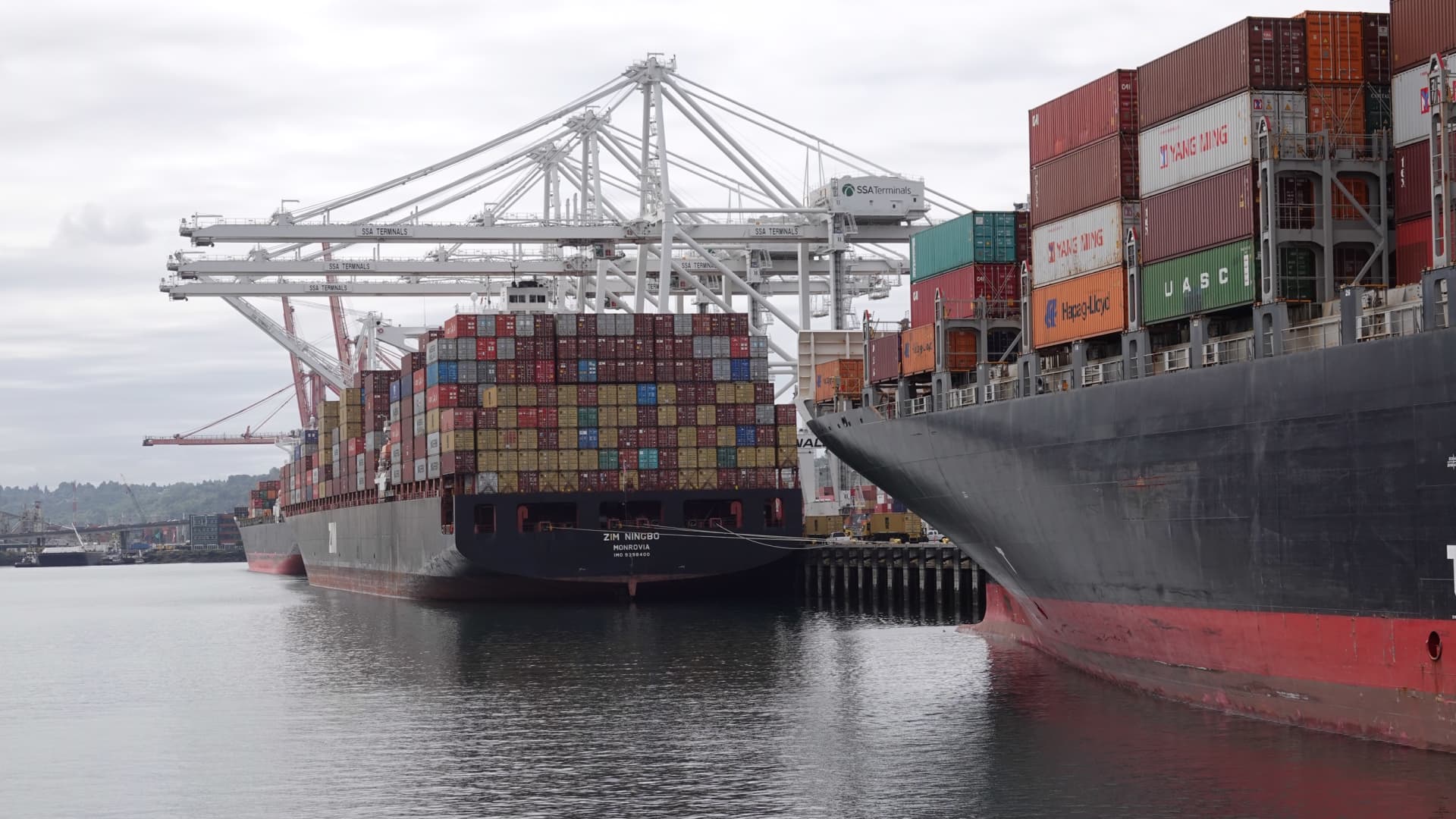The ongoing labor strife on the west coast has resulted in the shutdown of the Port of Seattle as the International Longshore and Warehouse Union (ILWU) has refused to dispatch labor to work at the container terminals. The Pacific Maritime Association (PMA), which represents the terminals at the ports, made the announcement. The West Coast ports have experienced continuous worker slowdowns and stoppages all week long, leaving an estimated $5.2 billion worth of trade floating off the Ports of Los Angeles, Long Beach, and Oakland.
In an email statement, the ILWU said it remains committed to bargaining a contract that is “fair and equitable and represents the hard work and contributions of its members toward the ongoing success of the multibillion-dollar shipping industry.” The union also accused the PMA of using the media to leverage one-sided information in an attempt to influence the process.
The Port of Seattle, along with its twin port, The Port of Tacoma, make up what is called the Northwest Seaport Alliance (NWSA). The Port of Seattle is one of the top maritime ports in North America that U.S. ag exporters rely on to ship their produce and grain. Some 40% of the State of Washington’s jobs are tied to trade. The top trading partners in 2022 were China, Japan, Vietnam, South Korea, Taiwan, Thailand, Indonesia, Malaysia, Philippines, and India.
Agriculture Transportation Coalition (AgTC), which represents ag shippers, has expressed its concern about the disruptions caused by the labor strikes. These disruptions not only hurt the reputation of U.S. ag exporters as a reliable trading partner, but they also have global implications. Peter Friedmann, executive director of AgTC, stressed that the impact of these West Coast disruptions is felt worldwide. “When the ILWU-PMA negotiations broke down at the end of a previous contract, Japan’s Agriculture Ministry wrote our U.S. Dept of Agriculture, to the effect, ‘Your ports aren’t working, but our cows are still eating.'”
The NWSA is the country’s second-largest gateway for refrigerated containers called, “reefers.” Frozen products like french fries, meat, dairy, apple, and fish are transported in these specialized containers. “Our agriculture can’t stand by and can’t be stored on terminals,” said Friedmann. “We can’t continuously miss sailings and delivery commitments to overseas buyers.” He warned that ag exporters, with very few exceptions, do not have the option to shift from West Coast gateways to the East and Gulf coasts but foreign buyers do. They are called Argentina, Brazil, Australia, and New Zealand. “We don’t want to lose these customers.”
The NWSA is also a port importer of automobiles with a terminal dedicated to Roll-On and Roll-Off vessels. Auto imports were up 6.5% in 2022 compared to 2021, with 172,979 units delivered. Kia and Hyundai automobiles use this gateway. CNBC has reached out to the Port of Seattle for a comment but has not received a response at the time of press.
Denial of responsibility! VigourTimes is an automatic aggregator of Global media. In each content, the hyperlink to the primary source is specified. All trademarks belong to their rightful owners, and all materials to their authors. For any complaint, please reach us at – [email protected]. We will take necessary action within 24 hours.


